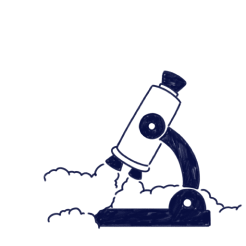
Angel Buendia
Knowledge Manager, Scilife
With 20+ years of experience shaping quality within pharmaceuticals, Ángel bridges QC & QA expertise in Life Sciences. His passion for continuous learning, combined with his role as a Smart Quality advocate, drives his dedication to instilling a Quality Culture, guiding teams with collaborative leadership, and fostering excellence as a cornerstone. He navigates complex regulations, and is driven by upholding high standards and fueling innovation.
More articles from Angel Buendia
The hype of artificial intelligence (AI) is revolutionizing industries such as pharmaceuticals and medical devices.
We spoke with our Chief Quality Officer to explore strategies for fostering inclusion within the workplace.
We sat down with our Chief Growth Officer to discuss how we can inspire inclusion in the workplace.
The world of medical devices is steeped in regulations - you can't say medical devices without saying compliance. In this world of medical device regulations, compliance is critical. It ensures the safety and efficacy of products entering the market ...
Regulatory frameworks for Artificial Intelligence (AI) in the pharmaceutical and medical device industries are undergoing significant changes to meet the challenges and opportunities posed by this technology.
While sometimes deprioritized, regulatory compliance is critical for medical device manufacturers. And among the global regulatory frameworks, the Medical Device Single Audit Program (MDSAP) has gained prominence over the past decade. MDSAP is a comp...
Having the FDA knocking on your door for medical device inspections is scary! But the management of FDA inspections for medical devices is a critical aspect of ensuring compliance with regulatory standards and maintaining the integrity of the medical...
If you’ve been on the lookout for a go-to resource offering valuable tips for technical writing, your search is finally over. We’re here to simplify complexity.
Quality can help organizations drive compliance and growth, as well as reduce costs, by shifting from being an operational compliance issue to a strategic business initiative.
The United States Food and Drug Administration (FDA) is the regulatory body responsible for the safety and efficacy of medical devices in the United States. The 510(k) clearance is their classic premarket clearance for Class II medical devices that m...
We all know that in the European Union, life science companies that export to the United States must comply with 21 CFR Part 11. The regulation, overseen by the US Food and Drug Administration (FDA), oversees electronic records and electronic signatu...
Quality management is the foundation of medical device manufacturing, as it interlinks with every aspect of the process, from design and development to post-market surveillance. Quality management systems (QMS) are deeply entrenched in the industry a...
Subscribe to the
Scilife Blog
Life Science and Quality resources and news. All directly to your inbox!
